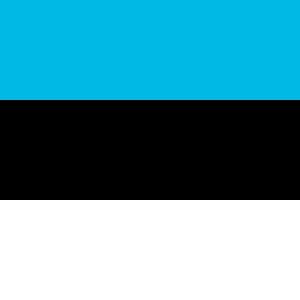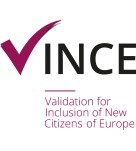 In Estonia principles for validation of non-formal and informal learning (also known as Recognition of Prior Learning, RPL) have been developed and are now regulated by the HE and VET educational legislation. The validation principles are generally also used in the system for awarding occupational qualifications. In the field of general education, the validation is allowed by law, but validation process and practice has not been clearly defined. Validation processes are being developed for adult gymnasiums, institutions providing non-formal education have been only partially involved in the implementation of validation.
In Estonia principles for validation of non-formal and informal learning (also known as Recognition of Prior Learning, RPL) have been developed and are now regulated by the HE and VET educational legislation. The validation principles are generally also used in the system for awarding occupational qualifications. In the field of general education, the validation is allowed by law, but validation process and practice has not been clearly defined. Validation processes are being developed for adult gymnasiums, institutions providing non-formal education have been only partially involved in the implementation of validation.
Validation practices in Estonia are well developed in the formal educational sector. Higher education (HE) has been leading development in relation to validation, followed by the VET sector. The challenge in Estonia is for other sectors to follow the developments in HE and VET and to create unified system.
The current system of RPL is fragmented and for potential applicants it is difficult to find his/her way around the various systems.
In Estonia the validation is understood as follows: Validations is a process that helps a recognized institution assess the competence of an applicant based on specific criteria. The key criteria are designed to assess how applicant’s knowledge, skills and aptitudes match the entry requirements of the educational institution, the learning outcomes of the programme or sections of it or the competency requirements of occupational standards.
Validation in HE and VET is seen as a regular part of study programme. Each institution is responsible for implementing validation including providing information, guiding, assessing and certifying.
Due to the end of funding a well-functioning network of validation practitioners is no longer active, therefore there is are no new common initiatives in HE sector.
How well the institutions are implementing validation is not possible to analyse, because there is no uniform database on validation processes and beneficiaries.
For the years 2014-2020 new goals have been set by the Estonian Lifelong Learning Strategy which is the document that guides the most important developments in the area of education. The general goal of this strategy is to provide all people of Estonia with learning opportunities through their lifetime. In this context the Adult Education Programme aims to implement validation in general adult education. Higher education and VET sectors programmes state the need to improve quality of validation practices and develop futher validation in the education area.
Validation has an important role to play in enhancing links among different levels of education and labour market.
Higher educational programme 2016-2019 features validation as a means for a flexible form of study by supporting the access to HE for various groups of learners.
VPL in Higher Education
General legislation supporting HE in Estonia is laid down in the following legal documents:
- Universities Act,
- Institutions of Professional Higher Education Act,
- Private Schools Act
- Standard of Higher Education
The Universities Act requires universities to accredit prior experiential learning and it has obliged them to develop their own rules and procedures for VPL. Since 2008 the major rules and purposes of VPL have been set up in major principles by Standard of Higher Education.
The Standard of Higher Education stipulates the aims and general principles for validation in very broad terms. According to subsection 12 (3) of the Standard of Higher Education, validation can be implemented:
- for complying with the conditions for admission established by the educational institution
- for transfer of previously acquired credit points upon completion of a curriculum
- for accreditation of prior studies and professional experience as credit points
Validation can also be used to access HE, replacing the necessary entrance qualifications except for the first degree level entry.
Since 2007 there have also been no limitations on the extent to which a HE programme can be completed through VPL, except for the final thesis. This means that whole curriculum can be attained on the basis of VPL, except for the final thesis or final examination.
Governmental regulation ‘Statutes and forms of diploma and diploma supplement’ stipulates that validation shall be reflected in the Diploma Supplement. The indication ‘recognised on the basis of prior learning (formal, non-formal or informal)’ shall be added to the subject/module in the diploma supplement.
The Standard of Higher Education also includes a broad framework of common validation implementation regulations and states that HE needs to have validation regulations within the institution.
Validation in the Labour Market
An eight-level qualification framework was established in 2008 by the Professions Act. The qualification framework consists of four sub-frameworks: for general education, for vocational education and training (VET), for HE and for occupational qualifications. Each sub-level has specific level descriptors.
The learning outcomes for each of the levels have been described. The learning outcomes for levels of higher education (professional higher education, Bachelor’s study, Master’s study and Doctoral study) are described in the higher education standard.
Educational as well as occupational standards are used in validation.
In the context of validation, the Professions Act has clarified the process of acquiring occupational standards and states the responsibility of the professional body (e.g. procedures for assessing and validating competences).
Skills audits, as described in European Recommendation on Validation are not available in Estonia.
The Estonian Unemployment Insurance Fund organises the provision of labour market services that help unemployed people to find new employment. The provision encompasses career counselling services and labour market training. Career information and counselling are also provided by the career centres in HE institutions. These career centres are focused on current students, employers and alumni. Career counselling has no clear links to validation practices.
Validation in the Third Sector
In Estonia validation practices are well established in the formal education and the main initiatives for the development of validation come from the HE sector, followed by other sectors. Third sector has not played an active role in validation initiatives and organisations from this sector haven’t shown a lot of interest for recognition of non-formal or informal learning.
The third sector is involved mainly in awarding occupational qualifications as the awarding body. For those, who are active in the third sector it is possible to validate their skills through methods of validation on the labour market.
ERPLA – The Estonian Association for Recognition of Previous Knowledge was established in 2013 as an NGO by a group of higher education validation practitioners. The main aims of the association are
- to support the professionalization of RPL practitioners,
- to support the implementation of quality assurance principles in RPL,
- to support cooperation of all sectors in RPL and
- creation of a unified RPL system.
However, ERPLA has not been an active contributor in development of validation due to lack of funding and due to lack of initiative of its members.
Funding of VPL
The costs for development of the validation system in HE (and VET) have been ESF programme-based. After the ESF programme periods ended, there was no funding for further validation developments.
For future years (2016-2019) the budget of roughly EUR 65.000 is specified in the Adult Education Programme for the development of validation system for adult general education only, while for the HE and VET programmes, which also state validation as one of their activities, it is not clearly stated which funds are earmarked for further development of validation.
Applicants in some HE institutions have to pay a validation fee, while other HE institutions cover the costs of validation as validation is seen as a regular part of their everyday work and duties. The fee varies from institution to institution. Certain institutions charge a fee based on the amount of credit points for which the applicant is applying while for others there is a simple application fee with no additional credit points charge.
More Information
- Documents about validation in Estonia in the VINCE library
- Country Report Estonia – 2016 update to the European Inventory on Validation of Non-formal and Informal Learning https://www.cedefop.europa.eu/files/2016_validate_ee.pdf
- Country Report Estonia – European Inventory on Validation of Non-formal and Informal Learning 2014 https://cumulus.cedefop.europa.eu/files/vetelib/2014/87055_EE.pdf
- The Estonian Lifelong Learning Strategy https://www.hm.ee/sites/default/files/estonian_lifelong_strategy.pdf

